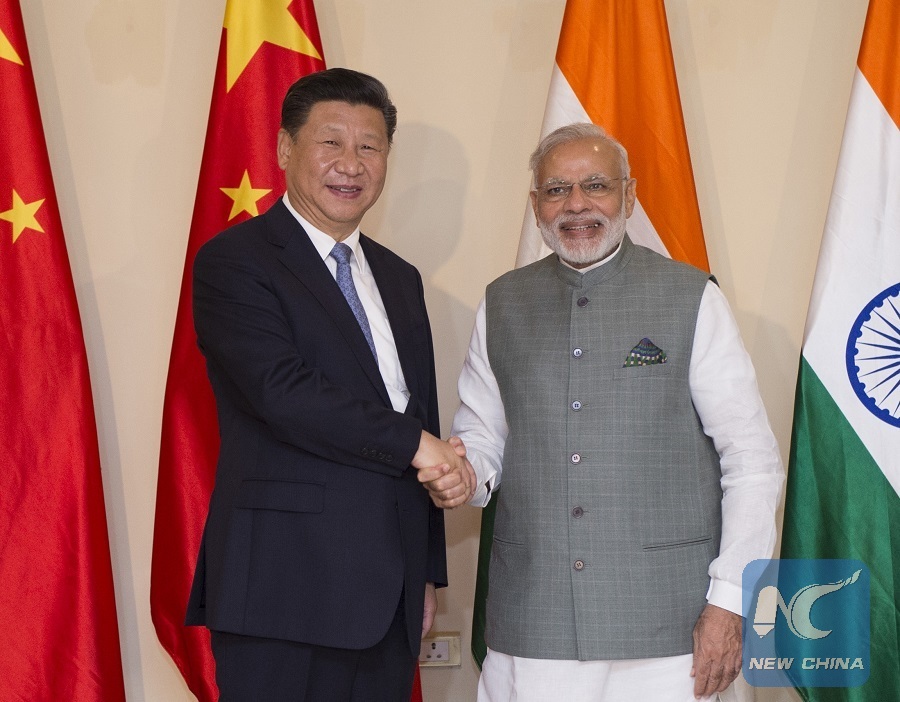
File photo: Chinese President Xi Jinping (L) meets with Indian Prime Minister Narendra Modi in the western Indian state of Goa, Oct. 15, 2016. (Xinhua/Xie Huanchi)
NEW DELHI, April 26 (Xinhua) -- Both China and India's development goals are similar and the April 27-28 informal meeting between Chinese President Xi Jinping and Indian Prime Minister Narendra Modi will promote free trade, strengthen unity among developing countries and uphold the principles of equity and justice, wrote Chinese Ambassador to India Luo Zhaohui in an article published here in a leading English daily Thursday.
As the world's two largest developing countries and major emerging markets, the two nations have to explore ways to get along with each other, the ambassador wrote in "Hindustan Times."
In his article entitled "India-China cooperation outweighs our difference," the Chinese envoy further stated that both countries are at a "critical stage" of economic development and modernisation.
The 19th National Congress of the Communist Party of China (CPC) recently laid out the blueprint for making the nation a great modern socialist country. India also has a three-year blueprint to achieve a "New India" by 2022 and a 15-year National Development Agenda.
According to him, India-China relations have been "stabilising and improving."
Giving an account of recent engagements between the two sides, he wrote, "Since the end of 2017, China and India's Special Representatives on Boundary Question and foreign ministers have exchanged visits. The China-India Joint Economic Group, China-India Strategic Economic Dialogue and other dialogue mechanisms have been activated. These efforts contributed to a positive atmosphere for the informal summit. Economic and trade cooperation between the two nations is surging. There have also been cultural and personnel exchanges."
Citing greater cultural and people-to-people exchanges, he wrote in his article that personnel exchanges in 2017 exceeded one million. Over 20,000 Indians study in China and 42 flights operate between the two countries every week. Yoga, Darjeeling tea and Bollywood movies are popular in China. Chinese language education has promising prospects in India.
In his article, the Chinese envoy also gave a historical perspective of China-India relations. "History is full of touching stories of monks such as Xuanzang and Bodhidharma traveling over mountains and oceans between China and India. In the 1950s, China and India co-proposed the Five Principles of Peaceful Coexistence, a new contribution to modern international relations."
Acknowledging that it's natural for neighbours to have differences, he suggested that when differences can't be solved for now, "we should properly manage them and focus on cooperation."
"Our consensus and cooperation outweigh differences and competition. We should bear in mind our bilateral long-term vision, hold reasonably optimistic expectations and give full play to five magic tools: the Navigator (strategic guidance of the two leaders), the accelerator (practical cooperation), the booster (people-to-people exchanges), the enhancer (multilateral cooperation), and the stabiliser (controlling differences)," his article concluded.

